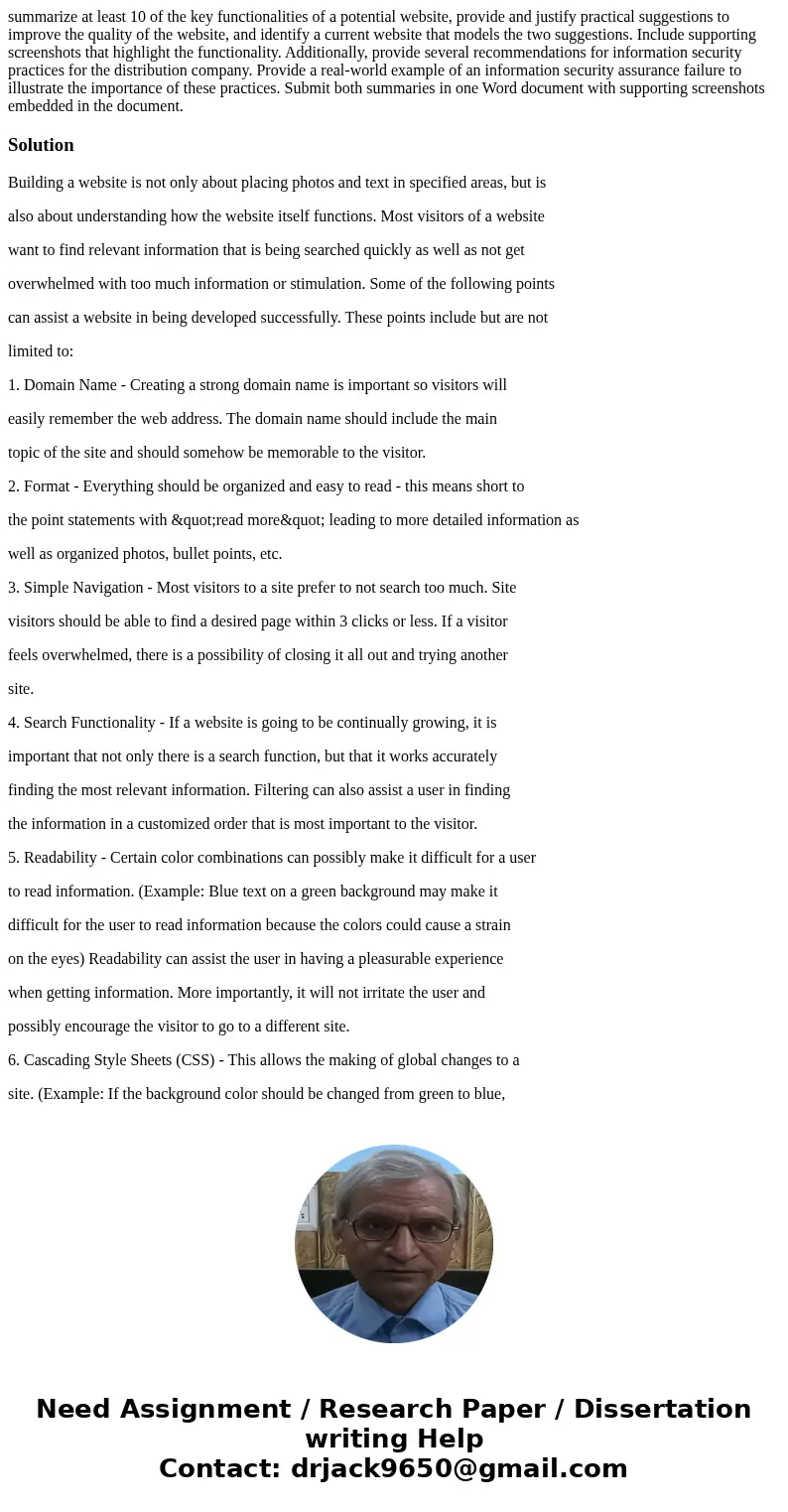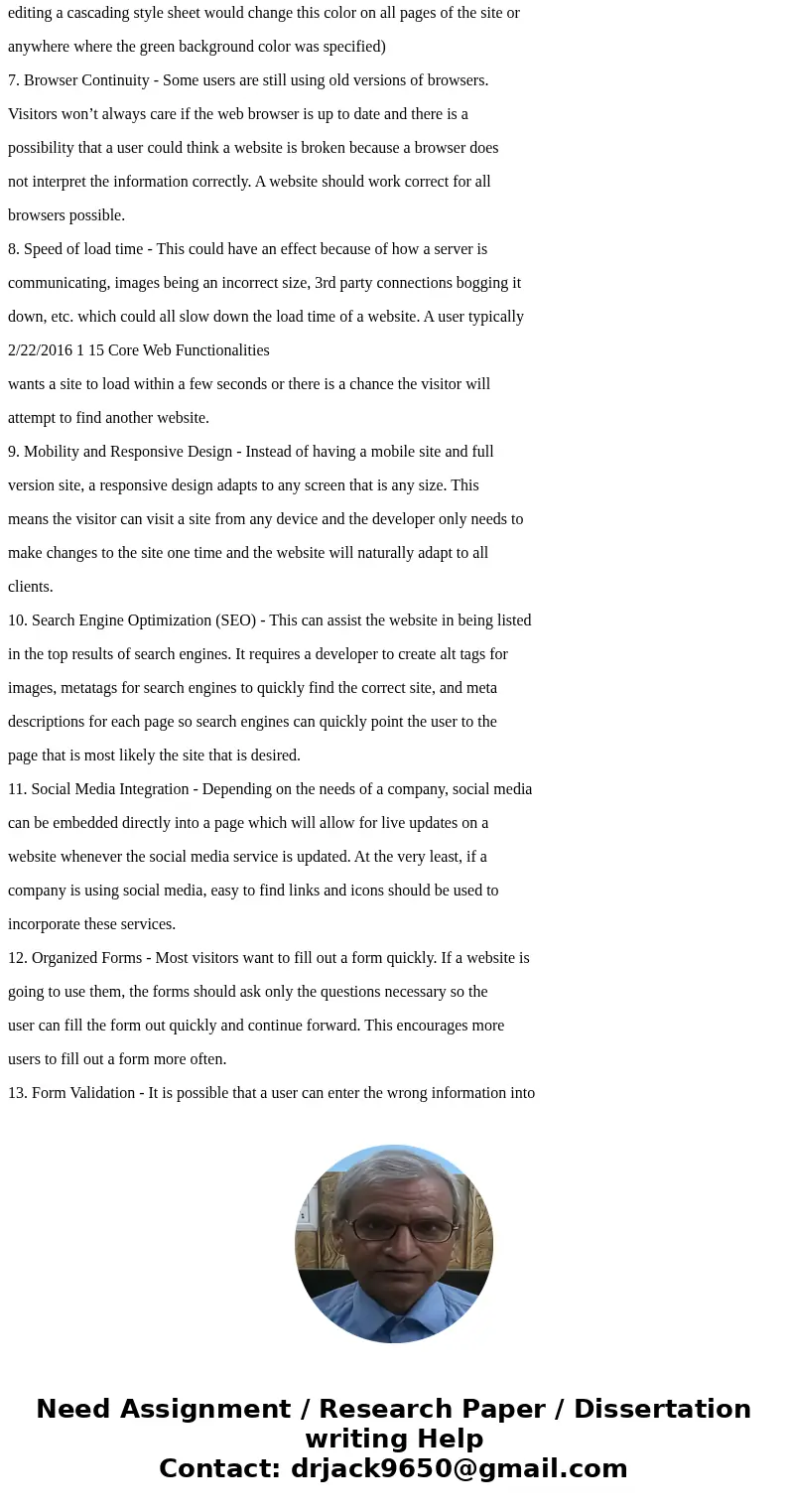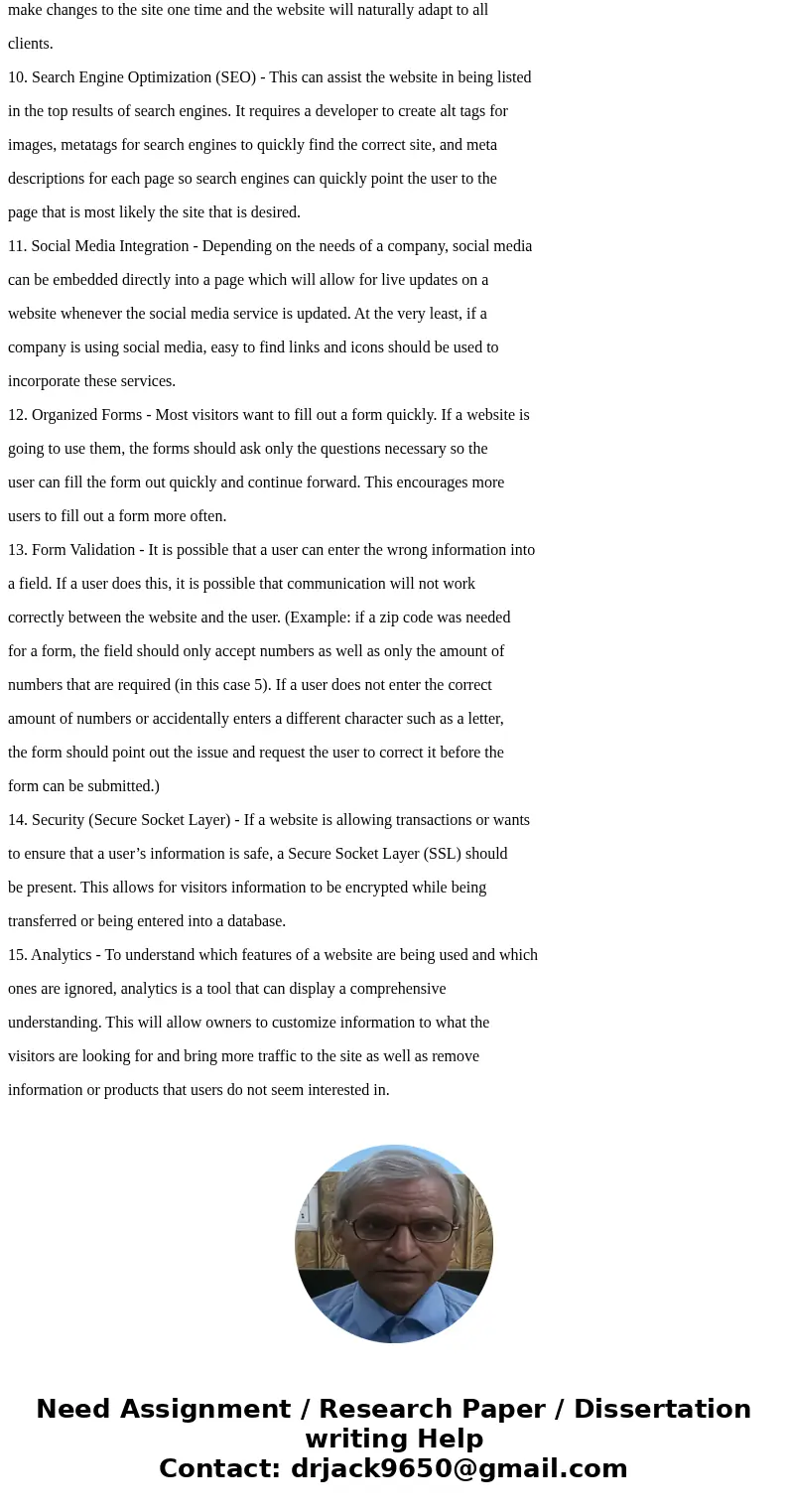summarize at least 10 of the key functionalities of a potent
summarize at least 10 of the key functionalities of a potential website, provide and justify practical suggestions to improve the quality of the website, and identify a current website that models the two suggestions. Include supporting screenshots that highlight the functionality. Additionally, provide several recommendations for information security practices for the distribution company. Provide a real-world example of an information security assurance failure to illustrate the importance of these practices. Submit both summaries in one Word document with supporting screenshots embedded in the document.
Solution
Building a website is not only about placing photos and text in specified areas, but is
also about understanding how the website itself functions. Most visitors of a website
want to find relevant information that is being searched quickly as well as not get
overwhelmed with too much information or stimulation. Some of the following points
can assist a website in being developed successfully. These points include but are not
limited to:
1. Domain Name - Creating a strong domain name is important so visitors will
easily remember the web address. The domain name should include the main
topic of the site and should somehow be memorable to the visitor.
2. Format - Everything should be organized and easy to read - this means short to
the point statements with "read more" leading to more detailed information as
well as organized photos, bullet points, etc.
3. Simple Navigation - Most visitors to a site prefer to not search too much. Site
visitors should be able to find a desired page within 3 clicks or less. If a visitor
feels overwhelmed, there is a possibility of closing it all out and trying another
site.
4. Search Functionality - If a website is going to be continually growing, it is
important that not only there is a search function, but that it works accurately
finding the most relevant information. Filtering can also assist a user in finding
the information in a customized order that is most important to the visitor.
5. Readability - Certain color combinations can possibly make it difficult for a user
to read information. (Example: Blue text on a green background may make it
difficult for the user to read information because the colors could cause a strain
on the eyes) Readability can assist the user in having a pleasurable experience
when getting information. More importantly, it will not irritate the user and
possibly encourage the visitor to go to a different site.
6. Cascading Style Sheets (CSS) - This allows the making of global changes to a
site. (Example: If the background color should be changed from green to blue,
editing a cascading style sheet would change this color on all pages of the site or
anywhere where the green background color was specified)
7. Browser Continuity - Some users are still using old versions of browsers.
Visitors won’t always care if the web browser is up to date and there is a
possibility that a user could think a website is broken because a browser does
not interpret the information correctly. A website should work correct for all
browsers possible.
8. Speed of load time - This could have an effect because of how a server is
communicating, images being an incorrect size, 3rd party connections bogging it
down, etc. which could all slow down the load time of a website. A user typically
2/22/2016 1 15 Core Web Functionalities
wants a site to load within a few seconds or there is a chance the visitor will
attempt to find another website.
9. Mobility and Responsive Design - Instead of having a mobile site and full
version site, a responsive design adapts to any screen that is any size. This
means the visitor can visit a site from any device and the developer only needs to
make changes to the site one time and the website will naturally adapt to all
clients.
10. Search Engine Optimization (SEO) - This can assist the website in being listed
in the top results of search engines. It requires a developer to create alt tags for
images, metatags for search engines to quickly find the correct site, and meta
descriptions for each page so search engines can quickly point the user to the
page that is most likely the site that is desired.
11. Social Media Integration - Depending on the needs of a company, social media
can be embedded directly into a page which will allow for live updates on a
website whenever the social media service is updated. At the very least, if a
company is using social media, easy to find links and icons should be used to
incorporate these services.
12. Organized Forms - Most visitors want to fill out a form quickly. If a website is
going to use them, the forms should ask only the questions necessary so the
user can fill the form out quickly and continue forward. This encourages more
users to fill out a form more often.
13. Form Validation - It is possible that a user can enter the wrong information into
a field. If a user does this, it is possible that communication will not work
correctly between the website and the user. (Example: if a zip code was needed
for a form, the field should only accept numbers as well as only the amount of
numbers that are required (in this case 5). If a user does not enter the correct
amount of numbers or accidentally enters a different character such as a letter,
the form should point out the issue and request the user to correct it before the
form can be submitted.)
14. Security (Secure Socket Layer) - If a website is allowing transactions or wants
to ensure that a user’s information is safe, a Secure Socket Layer (SSL) should
be present. This allows for visitors information to be encrypted while being
transferred or being entered into a database.
15. Analytics - To understand which features of a website are being used and which
ones are ignored, analytics is a tool that can display a comprehensive
understanding. This will allow owners to customize information to what the
visitors are looking for and bring more traffic to the site as well as remove
information or products that users do not seem interested in.



 Homework Sourse
Homework Sourse